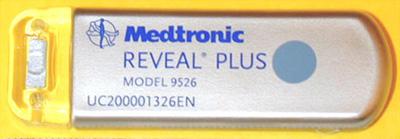
September 29, 2010 – A prospective study found that an implantable cardiac monitor detected arrhythmias in patients who had suffered a heart attack.
The CARISMA study, which looked at Medtronic’s Reveal Plus monitor, found that it recorded arrhythmias in 46 percent of patients with ejection fractions less than or equal to 40 percent and who had previously suffered an acute myocardial infarction (AMI). Nearly 86 percent of the arrhythmias detected were asymptomatic.
The study is the first to investigate the incidence and prognostic significance of arrhythmias documented by an insertable cardiac monitor in this patient population. Results were published in Circulation.
“For the first time there are data showing that continuous long-term monitoring allows detailed insight into post-AMI arrhythmias,” said Poul Erik Bloch Thomsen, M.D., the principal investigator, Gentofte University Hospital, Copenhagen, Denmark. “Additional information about post-AMI patients can help physicians determine appropriate medical intervention, such as an implantable cardioverter-defibrillator, pacemaker, or modified drug therapy.”
Pinpointing the frequency of arrhythmias in post-AMI patients has been limited due to a lack of clinically validated measurement tools.
Of the patients diagnosed with cardiac arrhythmias, 27 percent experienced new onset atrial fibrillation, 9.8 percent had high-degree atrioventricular (AV) block, 6.7 percent had sinus bradycardia, and 13 percent had non-sustained ventricular tachycardia. Additionally, 56 patients received an implantable cardioverter-defibrillator (11 for secondary indications; 45 for primary indications) and 15 patients received a pacemaker.
For more information: www.medtronic.com


 January 05, 2026
January 05, 2026 









